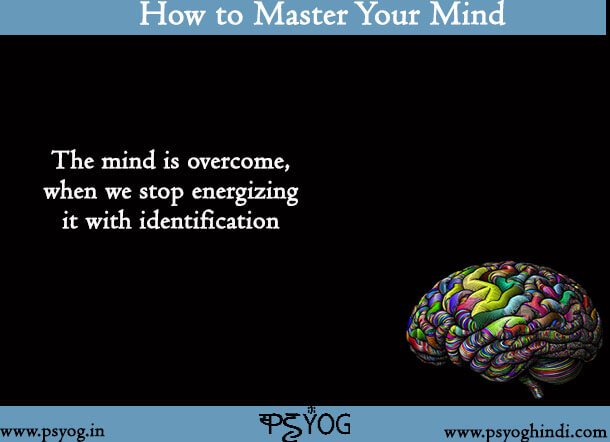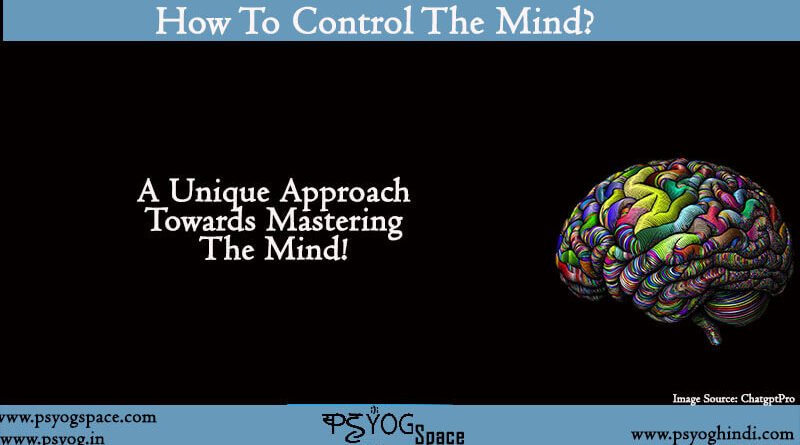How to Master Your Mind?
In a world brimming with constant information and distractions, one timeless quest remains universal: how to master your mind. We live in an age where techniques, tools, and hacks to control thoughts are shared endlessly — yet true mastery remains elusive for many. This article offers a perspective you may not have encountered before. Rather than battling the mind or suppressing thoughts, you will discover how understanding its true nature leads to effortless mastery. If you’ve tried affirmations, meditations, or willpower alone and found yourself stuck, read on — you are about to explore how to master your mind from a fundamentally different angle.
How to Master Your Mind
The thing is, to really know how to master your mind, it is important to first know what the mind actually is. The human mind is not an independent, mystical force; rather, it is a repository of sensory-accumulated memory. Every sight you have seen, every sound you have heard, every word spoken to you — all these are stored in your mind as impressions.
Over time, this accumulated memory forms patterns. These patterns give rise to thoughts, emotions, preferences, and identities. However, the key issue arises when you unconsciously become this mind — when your sense of self gets intertwined with this heap of memory. (Read: How to master the mind as per Bhagavad Gita?)
Once identification happens, the idea of controlling the mind becomes paradoxical. You cannot control something you think you are. It is like trying to lift yourself by pulling your own hair — an impossible task. This is why so many people struggle with mastering their thoughts: they are fighting their own reflection. The first step in understanding how to master your mind is to see that the mind is not “you” — it is something you have, a tool to use, not an identity to live through.
The Mind as Memory
When learning how to master your mind, the realization that your mind is memory-based is transformative. Most of what troubles people — worries, anxieties, compulsive thinking — is rooted in the past. The mind constantly recycles old data, projecting it into the future or rehashing the past.
Ask yourself: when was the last time a truly original thought emerged in your mind? Almost never. A lot of us do not know this, what we call thinking is largely the recycling of stored impressions. These are shaped by experiences, culture, education, and societal conditioning.
Understanding this removes the false mystique surrounding mental activity. You no longer have to wrestle with every thought or emotion. Instead, you see them as echoes of accumulated memory, not intrinsic parts of who you are. From this space of clarity, you naturally move closer to mastering your mind.

You Are Not the Mind
A vital part of how to master your mind lies in internal dis-identification. When you begin to observe the mind as something happening to you — like clouds passing through the sky — a gap emerges between “you” and the mind.
This gap is not about indifference or suppression. It is about witnessing. When you witness thoughts without identification, their power diminishes. They no longer dictate your emotions or behavior.
For example, a memory-triggered thought of failure might arise. If you are identified with it, it can spiral into self-doubt or paralysis. But if you witness it as a passing wave in the ocean of memory, its grip loosens. This shift is the essence of how to master your mind.
Practices such as mindfulness meditation, conscious breathing, or even brief moments of deliberate presence can enhance this witnessing capacity. The more you cultivate this, the freer you become from the mind’s automatic grip.
Practical Steps to Master Your Mind
Let’s translate this understanding into actionable steps for how to master your mind:
- Recognize the nature of the mind: Constantly remind yourself that your mind is a collection of memories and impressions, not your true self.
- Practice observation: Set aside time each day to observe your thoughts. Don’t judge or analyze — simply watch them arise and pass.
- Cultivate presence: Activities that ground you in the present moment — walking in nature, breathwork, mindful movement — help weaken the mind’s pull.
- Avoid identification traps: Notice when you say, “I am anxious” versus “I notice anxiety arising.” Language reflects identification. Shifting language shifts perception.
- Balance input: Be conscious of what you feed your mind. Just as a healthy diet affects the body, quality mental input impacts thought patterns.
Following these steps gradually rewires your relationship with your mind. Over time, you move from being its servant to its master.
Conclusion
In summary, understanding how to master your mind begins with a radical shift in perspective. The mind is a storehouse of sensory-accumulated memory, not your identity. Once you stop identifying with it, mastery ceases to be a struggle and becomes a natural state of being. (Read: What makes the human spirit indomitable?)
Remember: mastery is not about controlling every thought or achieving permanent silence. It is about gaining enough clarity and space to choose your response rather than reacting unconsciously.
In your journey of exploring how to master your mind, let this deeper understanding be your compass. Mastery lies not in fighting the mind, but in transcending identification with it. From this place of freedom, the mind becomes a powerful ally — and life unfolds with greater ease, clarity, and joy.
FAQs
Mastering your mind means experiencing yourself beyond the content of your mind. Most of us identify with the mind which gives it an upper hand over us. However, mastering your mind mind you have created a distance from it, and have gained its control.

